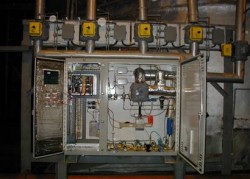Carbon in Ash Monitor (G-CAM)
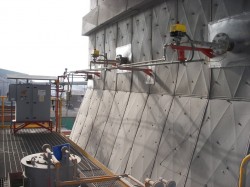
G-CAM Unit Installed
-
The Carbon In Ash Monitor (G-CAM) is not influenced by different coals. It utilizes microwave technology which, in turn, is not influenced by the variance in shading and optical properties of the fly ash.
-
One calibration would be applicable to a boiler. Microwave measurement coupled with density compensation results in excellent measurement accuracy.
-
Superior availability. An EPRI report from Gaston plant in Alabama clearly demonstrates the superior pe
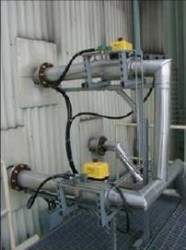 rformance of the recently revised technology at better than 90 % measurement availability.
rformance of the recently revised technology at better than 90 % measurement availability.
-
In the 6-month evaluation, non-availability comprised of no measurement at low loads due to low fly ash concentration in the duct. No maintenance was actually required over the 6-month period at Gaston.
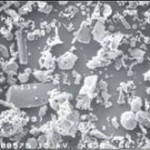 The Carbon in Ash Monitor can have a totally different front end called a PHS sampler, which rapidly samples from up to 6 transport lines for carbon in fly ash measurement. The typical turnaround time for each sample point is 30-45 seconds. This allows for measurement of multiple precipitator hoppers when discharging. A dedicated controller (PAC 1000) can be used to fully automate precipitator hopper discharge, controlling the transport route of the fly ash by fly ash quality.
The Carbon in Ash Monitor can have a totally different front end called a PHS sampler, which rapidly samples from up to 6 transport lines for carbon in fly ash measurement. The typical turnaround time for each sample point is 30-45 seconds. This allows for measurement of multiple precipitator hoppers when discharging. A dedicated controller (PAC 1000) can be used to fully automate precipitator hopper discharge, controlling the transport route of the fly ash by fly ash quality.
-
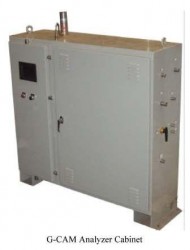 ADS system. True ISO-Kinetic sampling between Economizer and mill air heaters which avoids biasing the sample.
ADS system. True ISO-Kinetic sampling between Economizer and mill air heaters which avoids biasing the sample.
-
One instrument per boiler unit with multiple sample points
-
Heat traced piping between samplers and ducts for smooth material flow with no plugging.
-
System operation constantly monitors sample weight and microwave response, while carefully filling sample tube in the microwave wave-guide to ensure correct density compensation.
-
The duct and cyclone temperatures together with an optional MW signal from plant is used to generate a permissive when to sample during 2 shift operation conditions such as during an oil start-up the system aspirates continuously.
-
Maintenance is generally planned to coincide with a boiler outage, when the instrument has been switched-off for a longer period of time, during which time the instrument is isolated from the duct using the special valves supplied.
